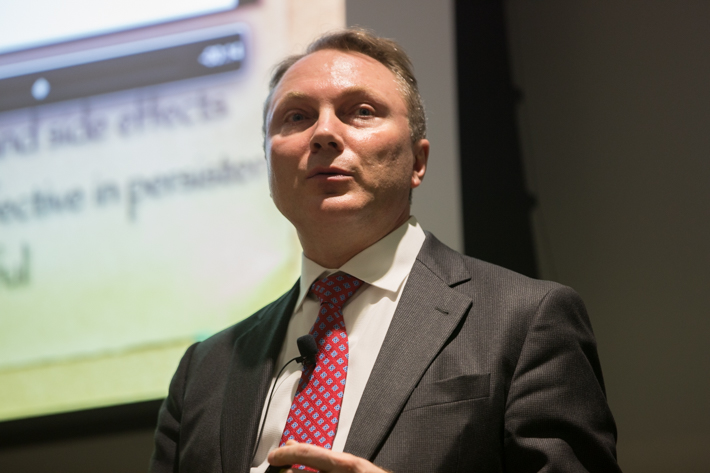By Kristen Mitchell
A George Washington University researcher is spearheading the first global study into specific abnormal heart rhythms that cause sudden cardiac deaths, a leading cause of death in the United States and beyond.
A network of global research institutions funded by a grant from the Fondation Leducq will research who is most at risk for sudden cardiac death and develop therapies to prevent it. Researchers will focus on abnormal ventricular repolarization, a stage when the heart relaxes and complications often take place.
GW will receive $899,863 over five years as part of the $5.9 million grant to the network.
Igor Efimov, chairman of GW’s Department of Biomedical Engineering, is the North American coordinator on the project. Dr. Efimov’s lab collects donated human hearts that were not acceptable for transplant and end-stage failing hearts. He studies them to determine what is abnormal about a failing heart compared to a normal heart.
Dr. Efimov and other researchers will study genetic mutations and heart rhythm conditions like Long QT Syndrome that cause sudden cardiac deaths. Dr. Efimov and the researchers from Johns Hopkins, Academic Medical Center in Amsterdam, Northwestern University, University of Auckland in New Zealand and Université de Bordeaux in France will work to develop screening and treatments.
In December investigators from all six international participant universities have gathered for a kickoff meeting which was held at the GW’s Science &
Engineering Hall.
“We want to develop a technology to identify abnormal electrocardiogram as early as possible, as inexpensively as possible and then supplement with genetic tests and then identify children with various repolarization syndromes,” he said.
By identifying young children with conditions like Long QT Syndrome—which causes fast and chaotic heartbeats—families can be warned to avoid potentially hazardous behaviors like competitive sports and excitement that could potentially be fatal. Alerting families to cardiac issues in babies can save lives, Dr. Efimov said.
More research on human tissue is needed in cardiovascular medicine because common animal substitutes in scientific research often don’t translate to successful treatments.
Mice have a heart rate 10 times faster than humans. Very little information gained through medical testing on mice can be related to understanding arrhythmia disturbances in humans. This helps explain why researchers have lagged in coming up with effective solutions, Dr. Efimov said.
“The disparities between mice and humans might help explain why the millions of dollars spent on basic research have yielded frustratingly few advances,” he said.
Heart disease is responsible for one in every four deaths in the United States and is the leading cause of death in American men and women, according to the Centers for Disease Control and Prevention.
At Washington University in St. Louis, Dr. Efimov procured 350 human hearts for research, and in a year at GW he has collected nearly 50. When the heart is taken to the lab, researchers resuscitate a small section of the heart to study how it reacts to certain drugs or gene editing. This is a way for researchers to perform testing on live human tissue without endangering people.
Through the global project researchers will be able to study the regional differences in cardiac deaths. In the United States cardiac deaths are more common in the South and Midwest, compared to the West and East coasts. They will also be able to study more samples of rare genetic syndromes.
“It opens a new opportunity for international work, to scale it up,” Dr. Efimov said. “To do more we have to combine efforts with many other groups.”
Researchers will work on curbing sudden cardiac deaths on a cellular level with gene editing and by studying mutations, and by developing wearable, inexpensive devices that could increase the number of early-age screenings.




